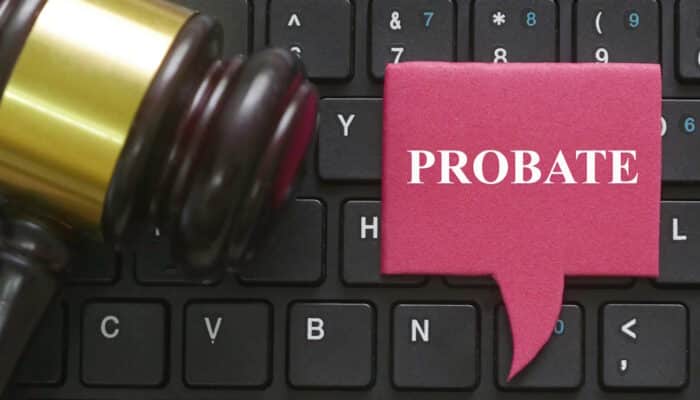Last Wills & Testaments and Living Trusts as well as Designations of Beneficiary and Lady Bird deeds allow a Florida resident to decide what will happen to their property and assets after death. Unfortunately, there are individuals who take advantage of ill or elderly adults to manipulate their estate planning documents to benefit themselves. Under Florida law, this manipulation is called Undue Influence. It is a common basis for a family member to contest such Last Will or Trust, etc.
Undue influence is complicated to prove and requires more than a mere hunch or gut feeling. In Florida, one needs solid evidence showing not only that undue influence was present but that it also affected the distribution of assets. If one is concerned that a loved one’s Last Will or Trust was impacted by undue influence, they should reach out to an attorney experienced in the area of Undue Influence.
Undue influence occurs when one party takes advantage of another, more vulnerable party. Undue influence can be present in many situations, but it is commonly seen in the cases of Last Wills and Trusts. If an individual suffers from illnesses such as Alzheimer’s disease or dementia which result in limited mental faculties or is dependent upon another person for care, it can leave that individual open to control, influence and/or manipulation. More commonly, one sees people exert undue influence to financially benefit themselves by either adding themselves as a beneficiary in estate planning documents or by increasing the share they receive and potentially removing other beneficiaries.
Undue influence can show up in many different ways, but there are signs commonly seen which show that an individual was experiencing undue influence when creating their estate planning documents:
- Terms of the document – If the document has provisions or distributions that are unexpected or unreasonable, that is a telltale sign of undue influence. Examples of such terms include leaving a close family member out of the Last Will or Trust or leaving a surprisingly large amount to certain individuals or organizations with no explanation.
- The capacity of the individual – If, at the time the estate planning document was created, the individual creating such document suffered from circumstances that made them vulnerable, that may have been another sign undue influence may have occurred. Circumstances that make an individual vulnerable can include illness, injury, or medications the individual was taking.
- Dependency – If the individual creating the estate planning documents is dependent on another person for care, this unequal power dynamic can lead to undue influence. The subject individual may feel that they need to follow their caretaker’s instructions to ensure their own wellbeing.
There are certain relationships that make undue influence more likely, including:
- Family relationships – Most often, undue influence occurs between family members. Family members tend to have a closer, more confidential bond, which can be utilized for financial gain. The exploitation of elderly family members is very common, and undue influence is just one way it can manifest.
- Caretaking relationships – Whenever a person is dependent on another for care, they are more likely to be exploited. Often, a caretaker is also a family member, but it is not necessary. Paid caretakers can also exploit those they care for and can be the ones exerting undue influence.
- Legal relationships – By definition, legal relationships are confidential and often close. Individuals often confide in their legal representatives that they would not share with others. This kind of relationship can make an individual more susceptible to undue influence.
Proving undue influence can be a challenge. Oftentimes, the person unduly influencing the individual has what looks like a close relationship with the said individual. It can be difficult to ascertain if that close relationship ever turned into exploitation. In order to assist individuals on demonstrating that undue influence occurred, the Florida courts have determined specific factors to use when evaluating a claim of undue influence. These factors are designed to help determine if a person actively procured a change in terms of a Last Will or Trust, including:
- Was the individual accused of excessive or undue influence when the document was drafted and executed?
- Was the individual accused of asserting undue influence present when the desire to create the document was expressed?
- Did the individual accused of undue influence recommend an attorney to prepare the documents?
- Was the individual accused of undue influence aware of the contents of the document prior to its execution?
- Did the individual accused of undue influence provide instructions to the attorney preparing the document?
- Did the individual accused of undue influence assist with securing witnesses for the document signing?
- Did the individual accused of undue influence keep the document after it was executed?
It is crucial to be aware that a claim for undue influence cannot be pursued until the grantor or testator has passed away. There can be a significant amount of time between the undue influence and the grantor or testator’s death, which makes undue influence even more difficult to prove. In many cases, events occurred so long ago that the person being accused of exerting undue influence is the only one left with firsthand knowledge of the circumstances surrounding the execution of the documents in question.
The courts in Florida recognize this difficulty, and to make it easier to prove undue influence, the court will alter or shift the burden of proof in certain cases.
If the person bringing the claim for undue influence can show all the following, then the court will shift the burden of proof to the individual accused of undue influence:
- The person accused of undue influence receives a substantial benefit as the document is written.
- The person accused of undue influence had a confidential relationship with the grantor or testator.
- The person accused of undue influence was actively involved in the procurement of the Trust or Last Will.
Some of the above items are easier to prove than others. The terms of the Last Will or Trust are straightforward, and the relationship between the parties is also easier to determine as there are usually witnesses who can testify to the nature of the relationship.
Showing an individual was actively involved in the procurement of the document is more challenging. The seven factors outlined above are strong indicators of active procurement, but there is no one specific factor that definitively proves undue influence, and the court will examine additional factors that may be presented or provided.
On such occasions, it is particularly beneficial to have an experienced attorney on the challenger’s side. An attorney who is familiar with undue influence and estate litigation can assist in the identification of these nuanced factors and work with a family member to create the most effective case possible. An experienced attorney will also ensure that the family member understands all the issues surrounding the burden and proof and the impact the judge has on their claim moving forward.
Even though the court may decide that the above-listed elements have been met and the burden of proof shifts, this does not mean that undue influence is sufficiently proven, and the document will be invalidated. It only means that the individual accused of undue influence must demonstrate by a preponderance of the evidence that they did not exert undue influence.
Similarly, if the burden of proof does not shift, that does not mean that your case is automatically over. One will still be able to demonstrate that the individual exerted undue influence, but they will be the one who has an obligation to prove it.
To contest a Last Will or Trust due to undue influence, a party has to have legal standing. Legal standing means that the person challenging the document has an interest in the estate. The most obvious parties to have standing to challenge a Last Will or Trust are the beneficiaries and/or family members. However, the issue of standing is not always clear.
A party can argue that they have standing if they have an interest in the current Trust, a prior Trust, the Trustee, or the Grantor. This is a large group that may include numerous individuals. If one is uncertain if they have the standing to challenge a document and bring a claim of undue influence, then they should contact an experienced estate litigator who can review the facts and advise them of their rights.
If a Florida resident is concerned that a loved one’s Last Will or Trust was the product of undue influence or if they themselves have been accused of exerting undue influence, they should not hesitate to act. Such a person needs a lawyer who is on their side and can guide them through this process. Effectively arguing the subject matter can be difficult, stressful, and complicated. A Florida estate litigation attorney experienced in handling undue influence claims will be able to fight to ensure that their loved one’s true wishes are fulfilled.
The foregoing is a brief and general overview of what may be considered Undue Influence in Florida.
If you have any additional Questions regarding the foregoing or have any legal issue or concern, please contact the law firm of CASERTA & SPIRITI in Miami Lakes, Florida.




